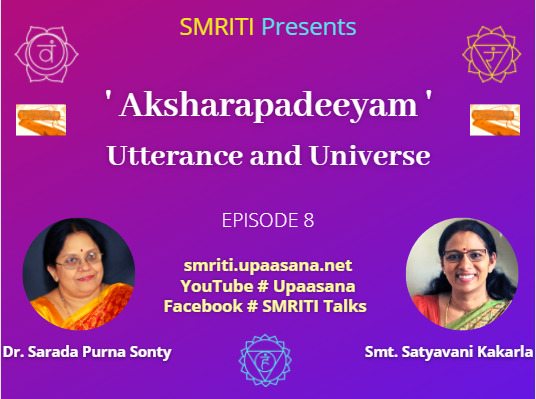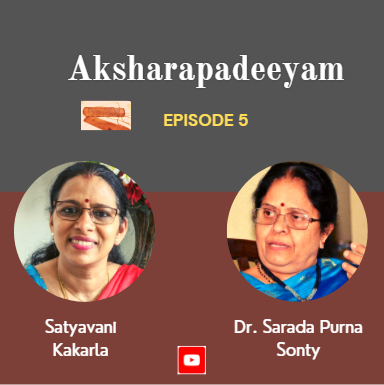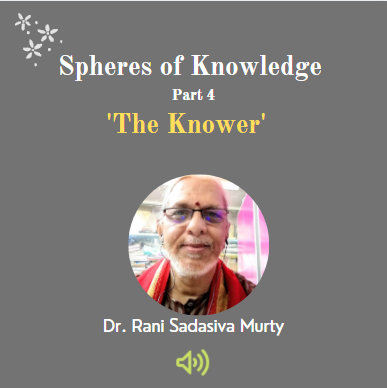“Akshara : is the primordial principle at the origin of every thing that manifest with many dimensions.
Akshara is finite, immense, expansive and beyond yet is subservient to ‘Atman’ .
Akshara is the womb of the Universe.
Akshara belongs to two 2 worlds – created & non-created, manifest and un-manifest.
Akshara has unique mediatory capacity, mediation ability.”
Veda-s is not our past, it is the present, it is the future as well.
Today we are not traveling back to Vedic times where time space concepts don’t exist . We are going to stand firmly on ground, in present, as being, make an effort to understand the difference ‘ if any ‘.
The ” Sound”, ” Dhvani”, ” Human Voice ” and ” Mechanical Sound ” together make an endless matrix…
Ancient Bharat (India) has been a host for Linguistic diversity.
Enriched with 22 official languages, 13 official scripts, 780 dialects spoken and 1560 regional dialectical variations. Our Linguistic foundations are led by Vedanga-s, Shiksha Shastra-s -> phonetics Pratishakhya-s, Vyakara grantha-s -> Grammar , Niruktha -> Etymology , Tharka shastra-> Logic and Chando grantha-s Meter.
All these are protecting our languages without hampering for thousands of years.
What a glory we all can celebrate!
In the process of acquiring knowledge the role of the knower is very important. The acquirer of knowledge is also called knower. There are many responsibilities for a knower, accordingly he is called with many names. After acquiring knowledge, he has to retain it in the best part of storage called Smriti. Hence, he is known as a knowledge retainer or a good memorizer. In the process of acquiring knowledge one may be a pursuant or seeker or one who is thirsty after knowledge.
There are few aspects that have been puzzling the philosophers, linguists, and thinkers for thousands of years. The issue is concerning the relationship between “Thought and Expression,” “Sounds within and Words articulated,” “Linguistic potency and Linguistic competence within us,” “Origin of Word and Worldly Languages.”
Often it is believed that languages serve as vehicles of thoughts for expression. Two major aspects are to be addressed to understand ‘thought’ and ‘language’ and their different dimensions – “Philosophy of language” and “Philosophical psychology.”




